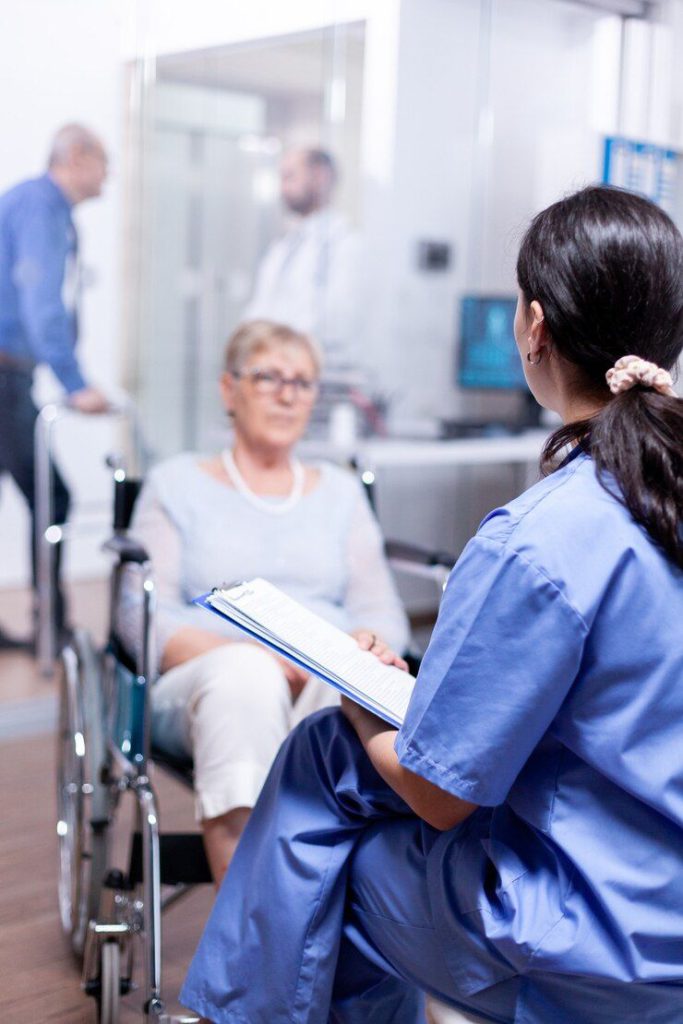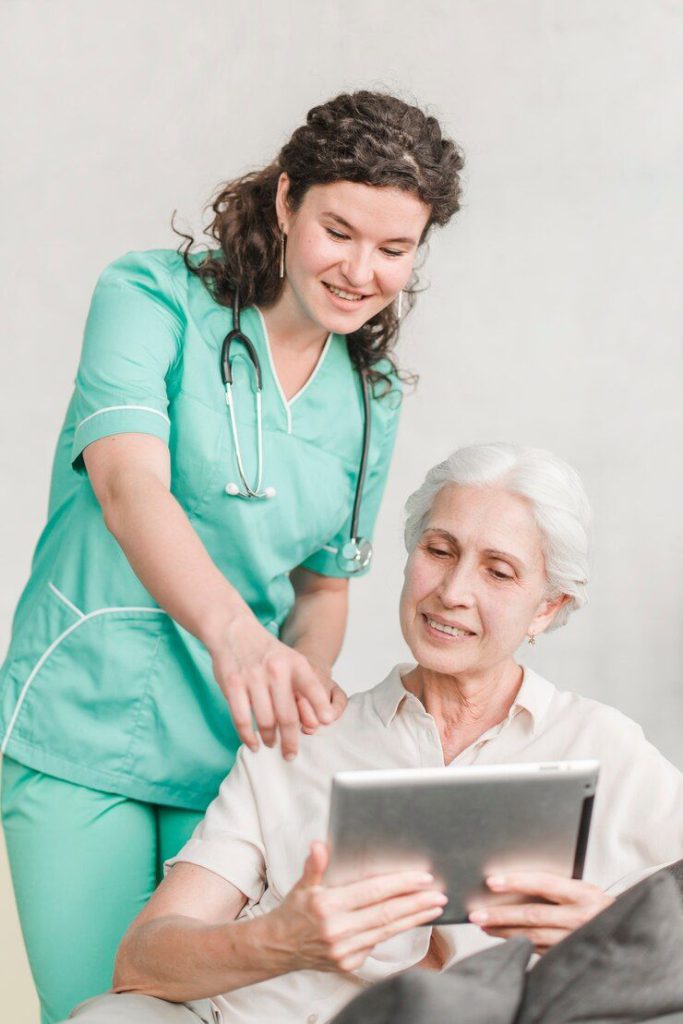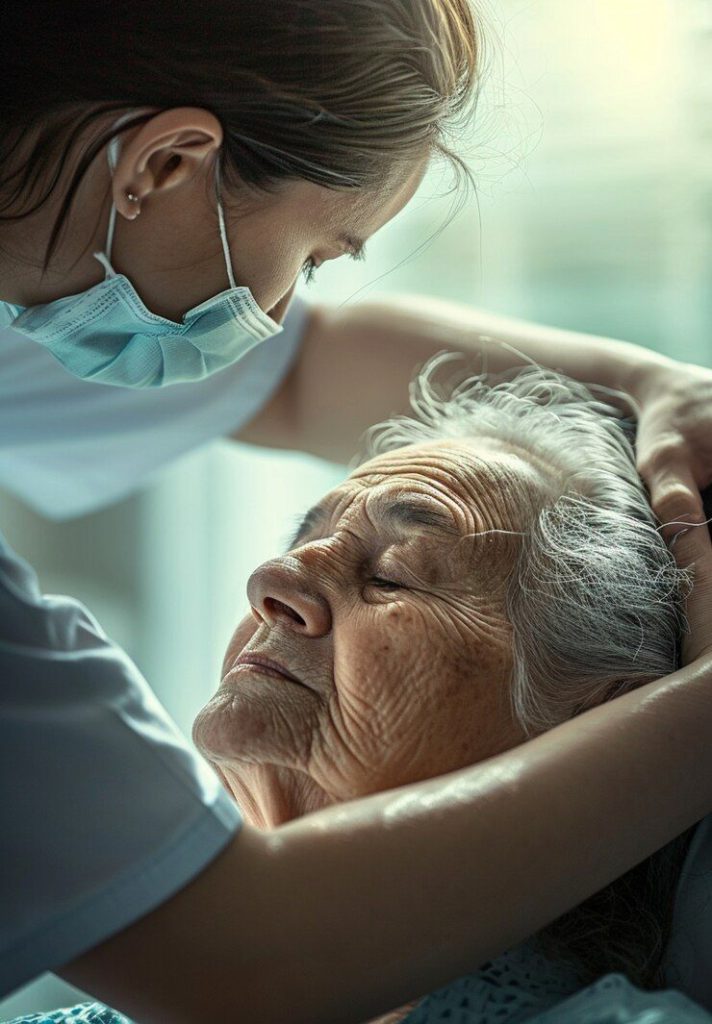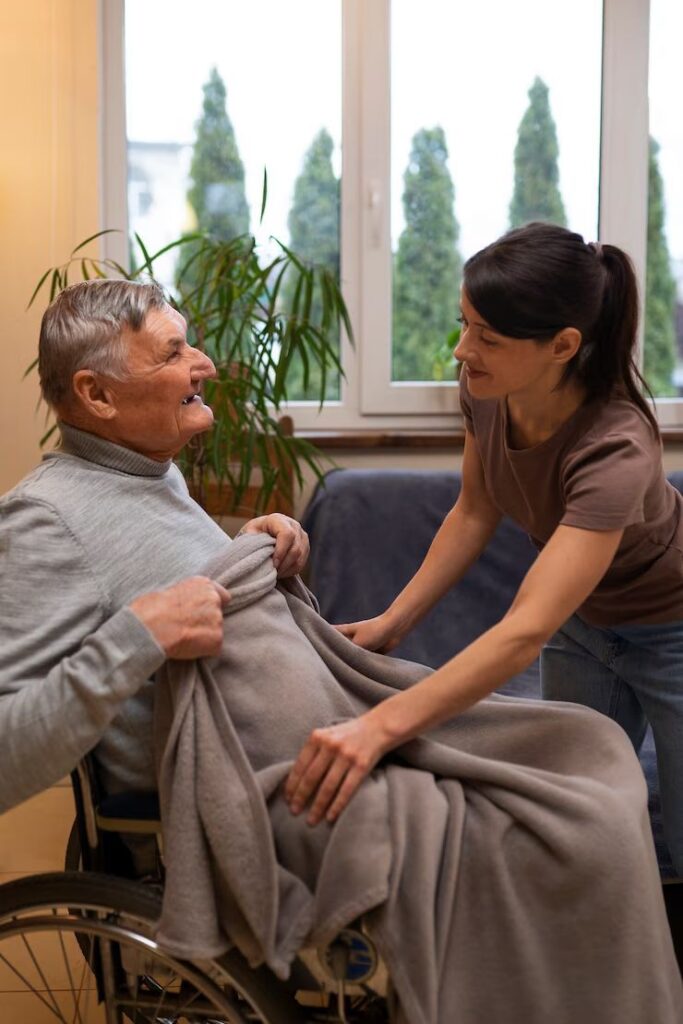
Our Services
Phileo Healthcare Solutions offers a broad range of home healthcare services tailored to meet your unique medical and personal needs. We provide compassionate care for all ages, with specialized services such as:
Skilled Nursing Care Service
- High-tech nursing
High-tech nursing refers to the use of advanced medical technology to care for patients with complex health conditions. This includes operating ventilators, dialysis machines, and other life-sustaining equipment in the home. Skilled nurses are trained to handle such equipment, ensuring patients receive the highest level of care in a non-hospital setting.
- Assistance with medical machinery, including ventilators
For patients reliant on medical equipment such as ventilators, skilled nurses offer round-the-clock care to manage and monitor their usage. This ensures that the machines function correctly, providing patients with the oxygen or other life-saving treatments they need to thrive at home. Nurses also educate families on how to assist and maintain the equipment.
- Central and peripheral intravenous drug therapy, such as chemotherapy
Skilled nurses administer intravenous (IV) medications, including chemotherapy for cancer patients, directly at home. This service allows patients to receive critical treatments without frequent trips to the hospital. Nurses ensure proper dosage, manage side effects, and provide comfort during these sometimes difficult procedures.
- Administration and maintenance of catheters
Catheter care is essential for patients who need help with urine drainage. Nurses insert, maintain, and monitor catheters to prevent infections and ensure proper function. Regular catheter care reduces the risk of complications such as urinary tract infections and promotes overall comfort.
- PICC line dressing changes
Patients with peripherally inserted central catheters (PICC lines) require regular dressing changes to avoid infections. Skilled nurses ensure the area is kept clean and secure, while monitoring for signs of infection or complications. They also teach patients and families how to care for the line between visits.
- Total Parenteral Nutrition (TPN), G-tube or other feedings
Patients who cannot eat normally may require nutritional support through Total Parenteral Nutrition (TPN) or feeding tubes. Skilled nurses manage these feeding systems, ensuring patients receive the necessary nutrients in a safe, controlled manner. They monitor for complications and adjust the process based on each patient’s needs.
- Epidural mediports
Skilled nurses manage epidural mediports for patients requiring continuous or intermittent pain relief or chemotherapy. They ensure that the mediport is functioning properly, preventing infections, and delivering medication as needed. Proper care of the mediport allows patients to remain comfortable at home during treatment.
- Wound care
For patients with complex or chronic wounds, skilled nursing provides essential care to promote healing. Nurses clean and dress wounds, monitor for signs of infection, and employ techniques to speed recovery. This service is crucial for patients with post-surgical wounds, diabetic ulcers, or other skin conditions.


Additional Services
- Physical therapy, occupational therapy, and speech therapy
Rehabilitation services like physical, occupational, and speech therapy are vital for patients recovering from surgery, stroke, or chronic conditions. Physical therapy helps regain strength and mobility, occupational therapy assists in performing daily tasks, and speech therapy addresses communication or swallowing difficulties.
- Blood draws and injections
Skilled nurses perform in-home blood draws and injections for routine tests, medication administration, and ongoing treatments. This service is especially important for patients with mobility issues or chronic conditions that require frequent monitoring or medication adjustments.
- Medication management
Proper medication management ensures patients take their prescriptions correctly and on time. Skilled nurses help organize, administer, and monitor medications to prevent harmful drug interactions and ensure optimal treatment outcomes.
- Monitoring of health status
Regular monitoring of a patient’s vital signs and overall health status is essential for early detection of potential complications. Nurses keep a close eye on changes in heart rate, blood pressure, oxygen levels, and other indicators to maintain stability and prompt adjustments in care if needed.
- Rehabilitation
In-home rehabilitation services help patients recover from illness, surgery, or injury. Skilled nurses and therapists collaborate to create personalized recovery plans, improving mobility, strength, and daily function, while helping patients regain independence in a comfortable home environment.
- Assessment and management of care
Nurses assess patients’ health status regularly to tailor the care plan to their evolving needs. This involves identifying potential health risks, setting up appropriate interventions, and coordinating with family and other healthcare providers for holistic care management.
- Teaching of self- or family-care techniques
Empowering patients and families with the knowledge and skills to manage care independently is crucial. Skilled nurses educate on administering medications, using medical equipment, wound care, and other techniques so patients can safely manage their care when the nurse is not present.
- Care for diseases and conditions such as Traumatic brain injury (TBI), Spinal cord injury (SCI), ALS, MS
Patients with serious conditions like TBI, SCI, ALS, or MS require specialized care. Skilled nurses develop individualized care plans to manage symptoms, prevent complications, and improve the quality of life. This can include mobility support, medication management, and rehabilitation therapies.
- Ventilator care
For patients dependent on ventilators, skilled nurses provide essential support in managing and maintaining the machine, monitoring breathing, and addressing any complications. Nurses work to ensure patients are comfortable and their respiratory needs are met around the clock.
- Tracheostomy care
Tracheostomy care involves cleaning, maintaining, and monitoring the tracheostomy tube, which helps patients with breathing difficulties. Skilled nurses provide expert care to prevent infections, ensure the tube remains clear, and educate families on emergency care procedures.


- Monitoring vital signs
Regular monitoring of vital signs, such as heart rate, blood pressure, and oxygen levels, helps detect early signs of potential health issues. Skilled nurses track these vital indicators to ensure patients remain stable and adjust treatment plans as needed.
- Administering medications
Skilled nurses ensure medications are administered correctly, whether through oral, intravenous, or injected methods. They monitor for side effects, ensure proper dosage, and help patients manage complex medication schedules.
- Ostomy/gastrostomy care
Patients with ostomies or gastrostomy tubes require specialized care to ensure their systems function properly and remain infection-free. Skilled nurses provide routine cleaning, bag changes, and monitor for any complications, helping patients maintain their comfort and dignity.
- Feeding tube care
For patients who need feeding tubes, skilled nurses ensure proper nutrition delivery, clean and maintain the tube, and monitor for any signs of infection or blockage. This essential care helps patients receive necessary nutrients safely at home.
- Catheter care
Catheter care involves regular cleaning, monitoring, and maintenance to prevent urinary tract infections and ensure proper functioning. Skilled nurses provide catheter insertion and removal services, keeping the patient comfortable and preventing complications.
